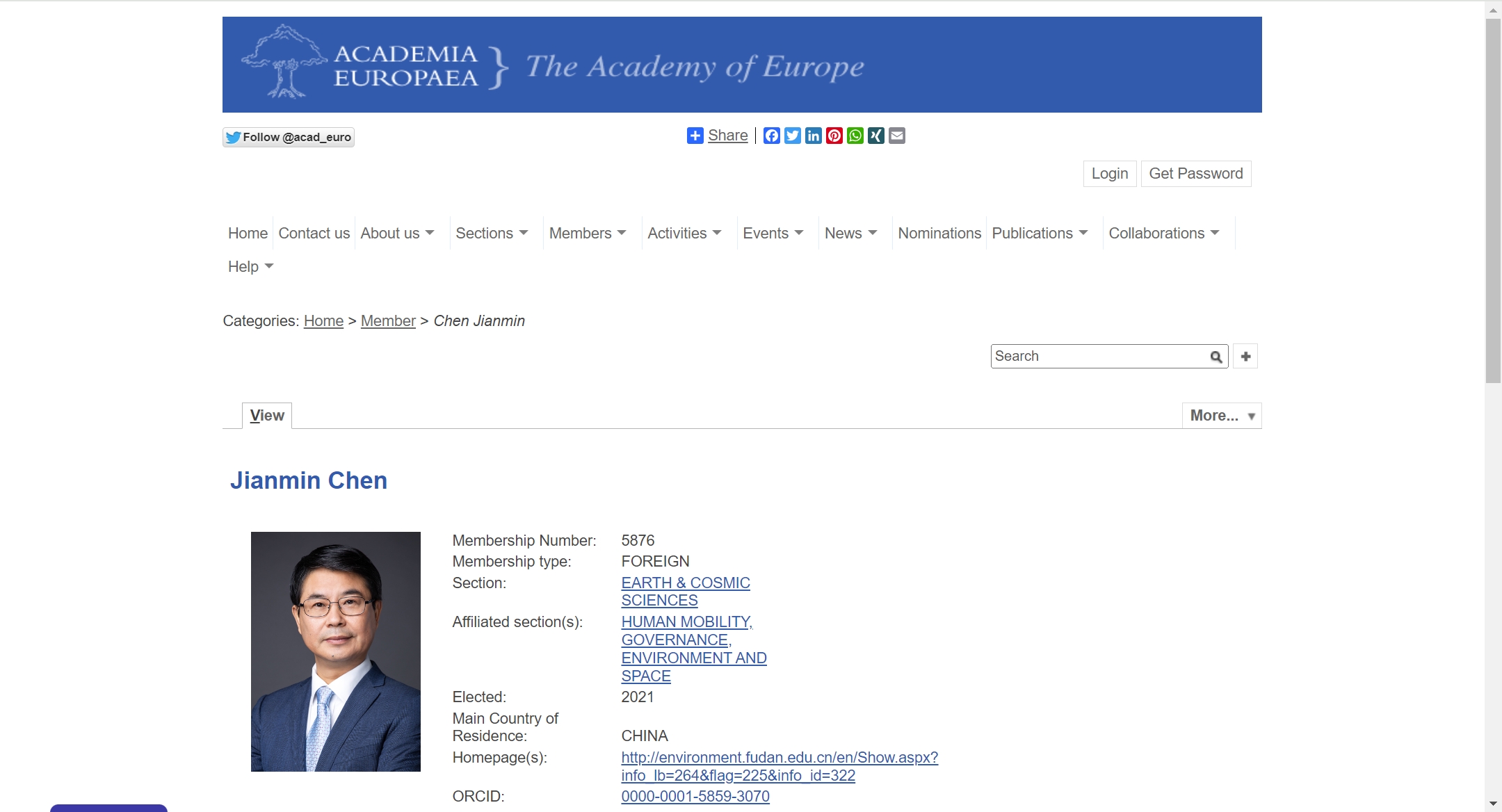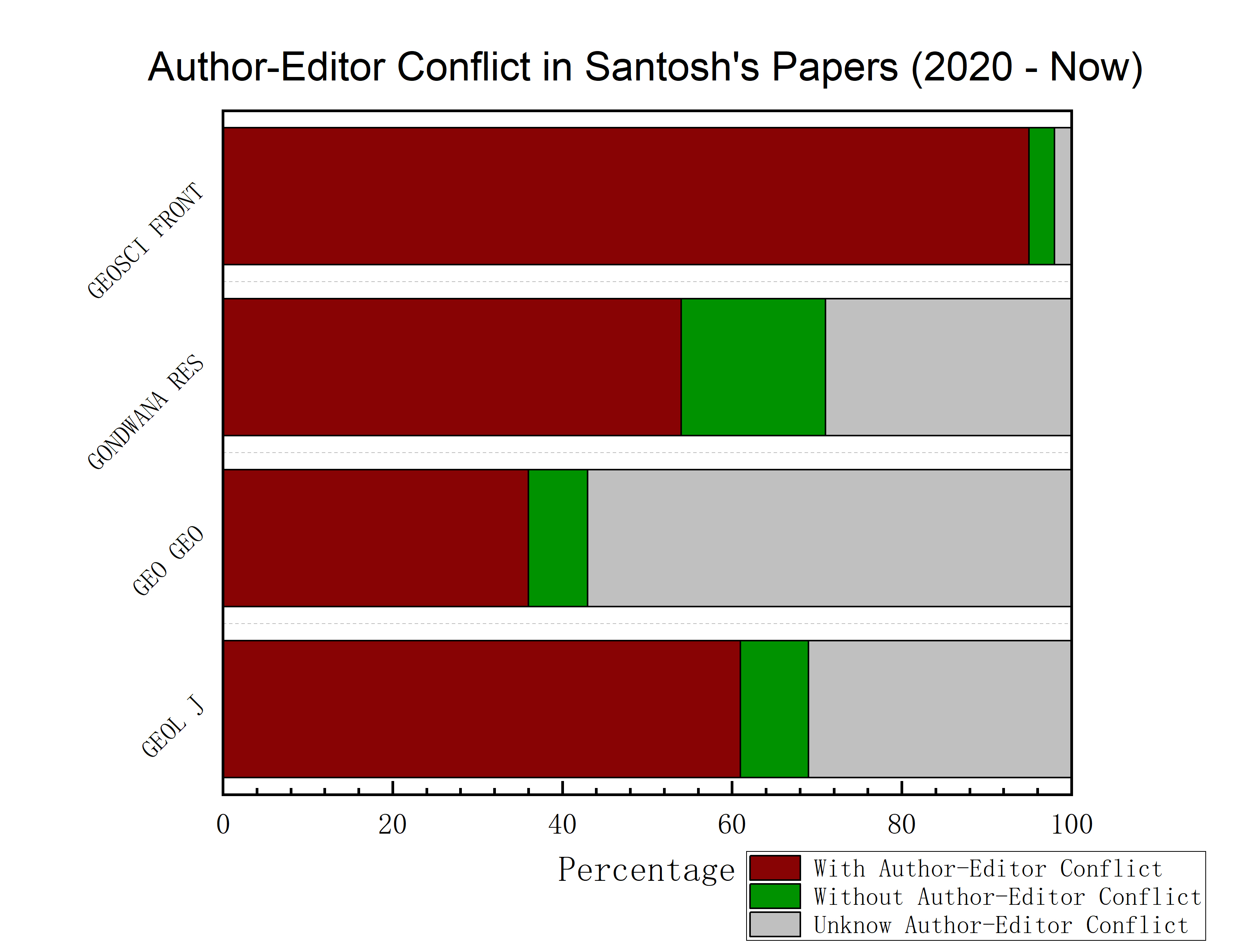Unethical Editors from STOTEN Are Moving to a Nature Portfolio Title
STOTEN, Science of the Total Environment, an Elsevier title, is currently “on hold” by the indexing agency Clarivate partly due to the questionable editorial practices by the editors [1], including some top researchers in China [1-2]. Those questionable editorial practices include Edit-for-Themself (acting the handling editor for their own article submitted to the journal), as well as Edit-for-Pal (acting the handling editor for articles from their previous coauthors, or from researcher at their institutions), causing concerns about the quality and reliability of the articles they handled.
Previous Questionable Editorial Practices by the Editors
However, the 5GH team found some of these unethical editors form STOTEN and other journals, such as Chemosphere, another journal is “on hold” by Clarivate, and Journal of Hazardous Materials (JHM), were assigned to the editorial board of a newly established Nature Portfolio title, npj Materials Sustainability. Those editors are:
Daniel CW Tsang (a.k.a. Dan Tsang), the Editor-in-Chief of npj Materials Sustainability, and previous editorial board member of STOTEN (2018-2024). According to the investigation by the us and our allies, Tsang got involved in questionable practices (mostly Edit-for-Pal) for 64 STOTEN articles (by the end of September, 2024), and the number is climbing fast [1, 3].
Daniel S. Alessi, editorial board member of both npj Materials Sustainability and STOTEN, has 3 questionable editorial practice records on STOTEN [1, 3-4], in which he edited for his frequent coauthors (like Yong Sik Ok and others).
Yifeng Zhang, editorial board member of both npj Materials Sustainability and STOTEN, has 4 questionable editorial practice records on STOTEN [1, 3], all of which He edited for hie frequent coauthor Aijie Wang, another unethical editor on Environmental Research, an Elsevier title.
Deyi Hou, editorial board member of both npj Materials Sustainability and STOTEN, has 16 questionable editorial practice records on STOTEN [1, 3], in which he edited for his frequent coauthors, including Daniel CW Tsang, the Editor-in-Chief of npj Materials Sustainability.
Wenshan Guo, editorial board member of both npj Materials Sustainability and STOTEN, has questionable editorial practice record(s) on STOTEN [1, 3], editing for article(s) from her frequent coauthor Huu Hao Ngo.
Teresa A.P. Rocha-Santos, editorial board member of both npj Materials Sustainability and Journal of Hazardous Materials (JHM), has questionable editorial practice records on JHM [5], editing for article(s) from his frequent coauthor(s).
Xinde Cao, editorial board member of both npj Materials Sustainability and Chemosphere, has questionable editorial practice records on Chemosphere [6-9], editing for article(s) from his frequent coauthor(s), including Daniel CW Tsang, the Editor-in-Chief of npj Materials Sustainability.
It is noticed that the above-mentioned unethical editors also received Edit-for-Pal from their frequent coauthor(s) on the same journals, or other journals. These questionable editorial practices are thus believed to be organized and to promote the publications for their “academic friends”.
Lack of Diversity among the Editorial Board Members
The current editorial board also causes concerns about its diversity, which is crucial for the sustainability of the journal. 14 of 36 (about 1 in 3) editors in the board are clustered to a group, sharing coauthorship between at least two members [10]. Daniel CW Tsang, Deyi Hou, Shicheng Zhang, Daniel S. Alessi, and Xinde Cao are the core authors among this researcher group.
For example, Daniel CW Tsang previously coauthored with 11 editorial board members of npj Materials Sustainability. Deyi Hou with Tsinghua University, China, ranks first among the editors have coauthorship with Daniel CW Tsang. Until late September, 2024, Deyi Hou have 67 coauthorship with Daniel CW Tsang, following by Shicheng Zhang (31 coauthorship) with Fudan University, China, Daniel S. Alessi (25 coauthorship) with University of Alberta, Canada, as well as Xinde Cao (20 coauthorship) with Shanghai Jiaotong University, China.
The 5GH team want to address that the above-mentioned 14 clustered editors, by the mean of academic coauthorship, have strong “academic relationship” to each other, and they are a part of a larger clustered researchers in environmental science. Since a large number of editorial board members (7, or 1 in 5) have massive questionable editorial practice records, and the lack of transparency on editorial process of npj Materials Sustainability, such as not disclosing the information of the handling editor(s) and the reviewers with their review reports, the scientific community concerns whether those unethical editors would take advantages of their editorial role to promote publications from their collaborators.
Lack of Diversity of the Authorship on npj Materials Sustainability
And the scientific community has more reasons to worry about this. Until the early October, 2024, npj Materials Sustainability had published 36 articles (editorial articles are excluded), including 25 review articles and 11 research articles. 24 of them (67%), including 19 review articles (76%) and 5 research articles (45%), were coauthored by editorial board members, and/or their frequent coauthors [10].
We understand that at the early stage of a journal, the editorial board may need some “help” from their friends. But regarding to these huge proportions of the Article-from-Pal, and questionable editorial practice records with some editors, including the Editor-in-Chief, what is happening on npj Materials Sustainability is concerning. We urge Springer Nature, the publisher of the journal, to keep eyes on the editors.
Reference
[1] 5GH-SciPress-20241007.001 (in Chinese)
[3] Supporting Information (1)
[4] 10.1016/j.scitotenv.2024.173424
[5] 10.1016/j.jhazmat.2020.123775
[6] 10.1016/j.chemosphere.2020.126539
[7] 10.1016/j.chemosphere.2019.125344
[8] 10.1016/j.chemosphere.2016.01.043





